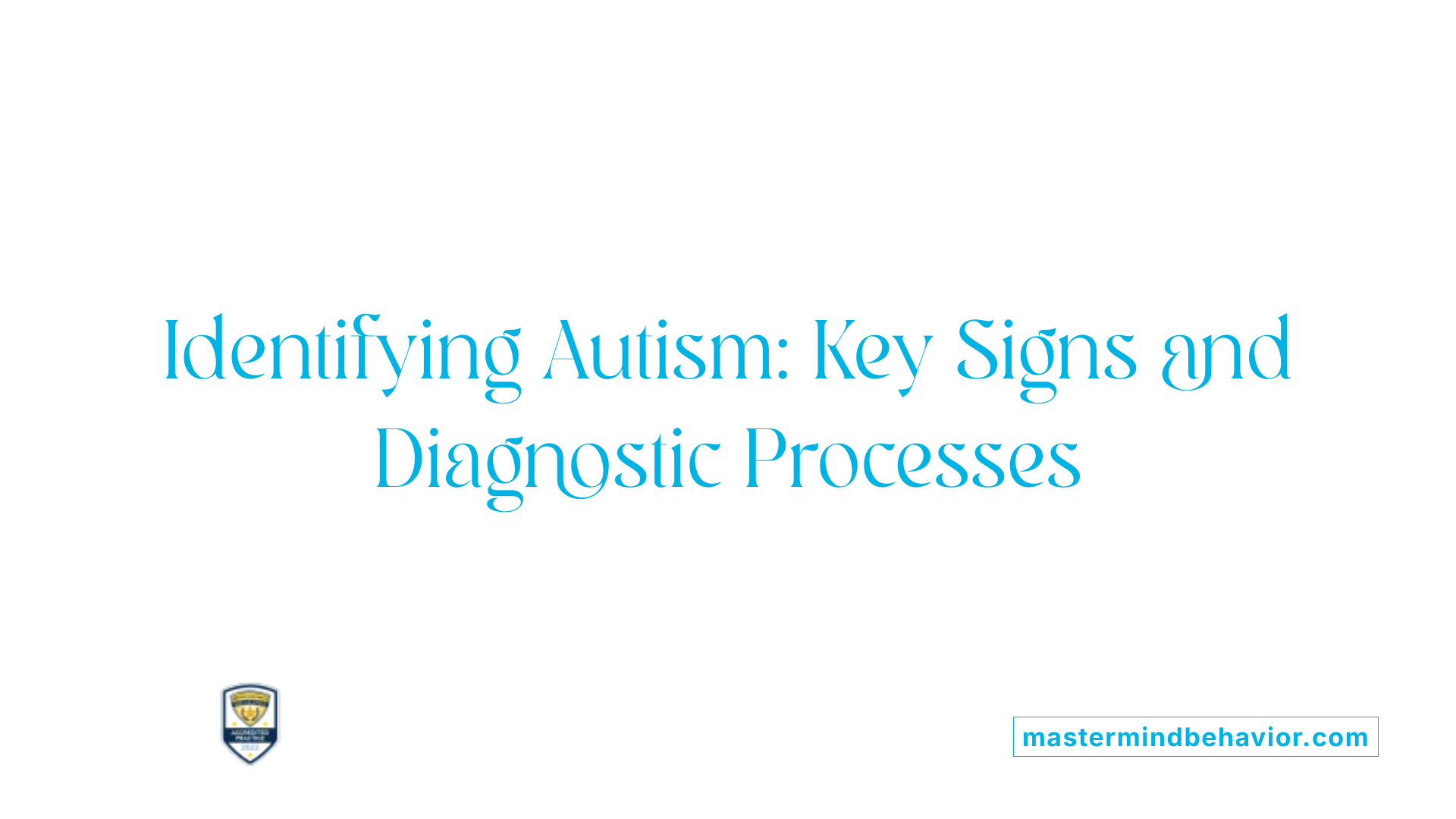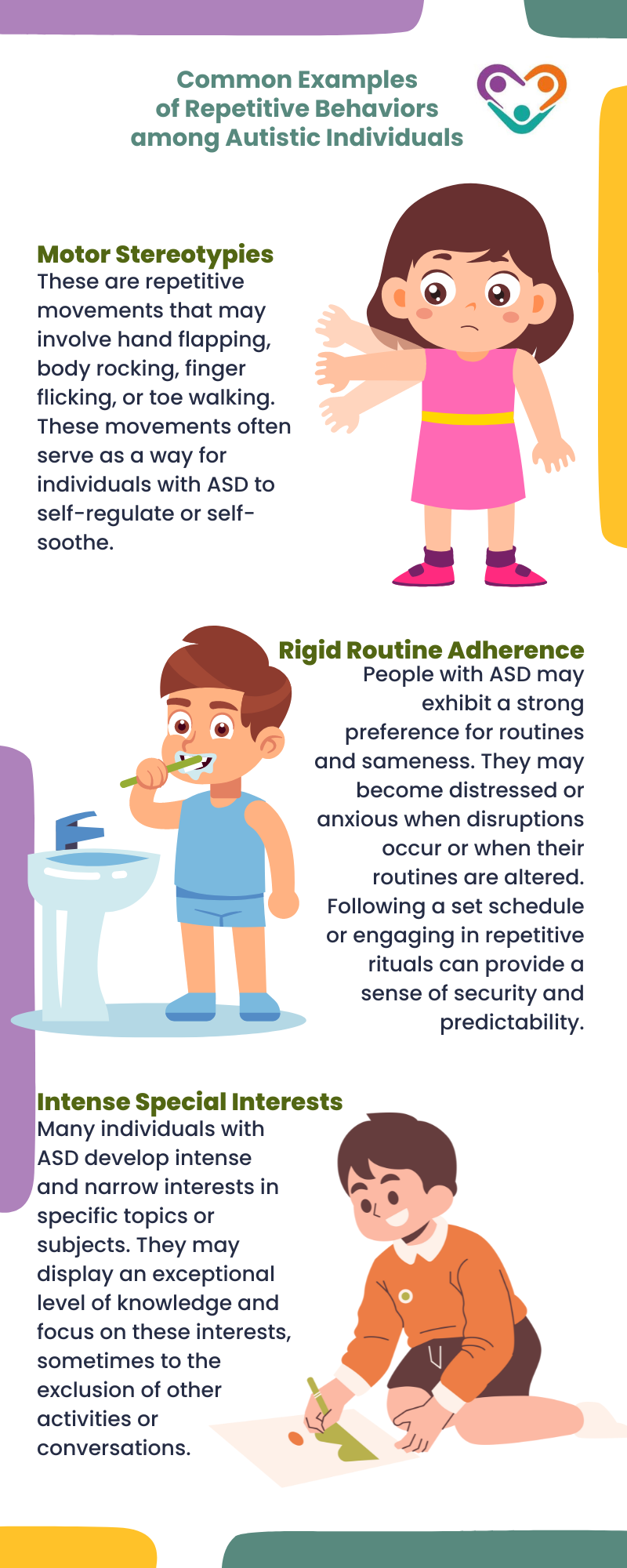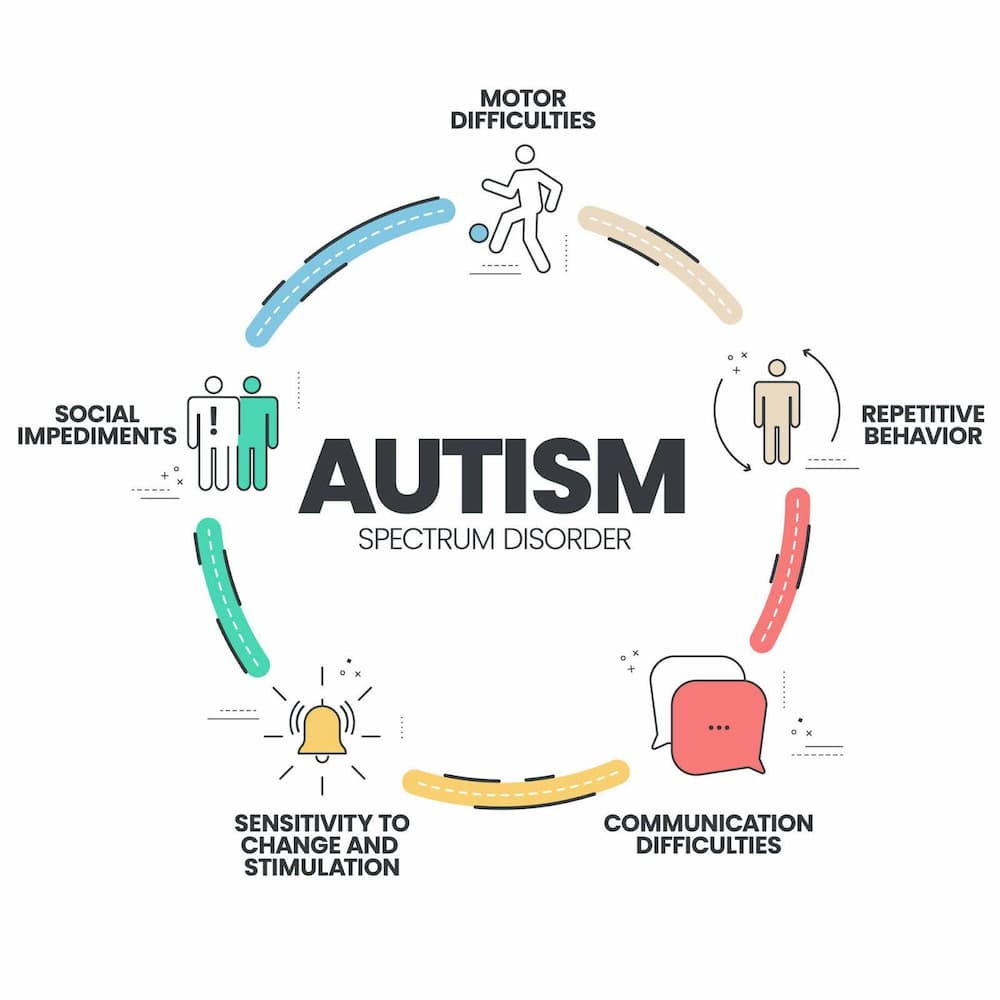Trick Indicators and Symptoms to Acknowledge in People With Behavioral Autism
When you run into someone with behavioral autism, recognizing vital indications and symptoms is important. You may observe difficulties in social communications and communication, in addition to a strong need for regimens. Furthermore, sensory level of sensitivities can lead to frustrating experiences. Understanding these traits can boost your support and interventions, but there's more to reveal concerning just how these behaviors materialize in day-to-day scenarios. Let's discover what these indicators really appear like.
Obstacles in Social Interactions
When you engage with someone on the autism spectrum, you might observe they fight with social hints and interaction. These obstacles can make social interactions really feel frustrating for them. You might see them preventing eye contact or standing too close or also much away during discussions, which can create misunderstandings. They may not pick up on body movement or faces, making it harder for them to evaluate how others are really feeling.
When they do engage, they could chat regarding their passions in great detail without noticing if you're interested. Comprehending these challenges can help you come close to interactions with empathy and perseverance, cultivating a much more comfortable atmosphere for both of you.
Problem With Verbal and Non-Verbal Interaction

Identifying these signs is important, as it aids you far better assistance and involve with individuals on the autism range. By understanding their interaction difficulties, you can cultivate more significant connections and give a more helpful environment.
Repetitive Actions and Routines
Interaction obstacles often go along with other indicators of autism, such as recurring behaviors and a strong choice for routines. You may observe that individuals with autism commonly involve in certain, repeated actions, like hand-flapping, rocking, or duplicating expressions. These habits can provide convenience and a sense of control in a typically frustrating world.
Regimens are similarly vital; lots of people prosper when they follow a structured schedule. You may find that modifications to these regimens can cause substantial distress. For instance, if they have a day-to-day routine of eating breakfast at a details time or adhering to a particular path to institution, any disturbance can trigger anxiety.
Recognizing these patterns assists you comprehend their habits and give assistance. By fitting their requirement for regular and enabling repeated actions, you can develop an extra comfortable atmosphere that relieves their obstacles.
Sensory Sensitivities

Typical Sensory Triggers
Sensory level of sensitivities can substantially influence day-to-day live for people with autism, as particular stimuli usually activate overwhelming reactions. Usual sensory triggers include loud noises, intense lights, and solid smells. You may discover that sudden audios, like alarms or alarm systems, create anxiety or distress. Similarly, fluorescent lights in shops can feel severe and uneasy. Structures can additionally play a significant function; rough textiles or specific food structures might be unbearable for you. In addition, crowded locations can overwhelm your detects, making it hard to focus or loosen up. Comprehending these triggers can assist you manage your setting better. By knowing what influences you, you can take actions to decrease discomfort and improve your daily experiences.
Behavior Responses Described
Recognizing your behavioral reactions to sensory level of sensitivities is essential, as they commonly disclose how you interact with the world. You could notice that particular sounds, lights, or textures overwhelm you, bring about anxiety or discomfort. When faced with these stimulations, you might withdraw, cover your ears, and even respond strongly. These actions aren't simply traits; they're your means of handling overstimulation. You may also discover on your own seeking details sensory experiences, like deep stress or quiet environments, to aid ground on your own. Identifying these patterns helps you recognize your requirements far better and can lead exactly how you communicate them to others. By acknowledging your sensory sensitivities, you can work towards creating a setting that feels more comfortable and convenient for you.
Coping Techniques Summary
Acknowledging your sensory sensitivities is simply the primary step; currently it's time to discover coping techniques that can help you take care of those experiences properly. Beginning by creating a sensory toolkit tailored to your demands. This might include noise-canceling earphones, fidget toys, or relaxing scents. Establishing a structured regimen can likewise supply predictability, decreasing anxiousness around sensory overload. When you feel overloaded, take breaks in a peaceful area to collect yourself. Exercising mindfulness strategies such as deep breathing can aid ground you in the minute. Furthermore, connect your requirements with those around you; having supportive friends and household can make a significant difference. Keep in mind, discovering what works finest for you might take some time, so be patient and open to attempting brand-new methods.
Limited Interests and Focus
While numerous people create a variety of rate of interests, those with autism commonly demonstrate restricted interests and an intense emphasis on details subjects. You might discover that somebody with autism can invest hours diving into their favorite topic, whether it's a certain kind of train, a specific film, or a scientific principle. This extreme focus isn't simply a leisure activity; it can click here to read come to be a central component of their identification and social interactions.
You might discover that conversations focus on these rate of interests, and they might struggle to take part in more comprehensive subjects. For them, these concentrated passions supply comfort and a sense of mastery. While it's essential to encourage expedition of new subjects, appreciating their interests is just as vital. By recognizing and recognizing these restricted interests, you can foster a supportive setting where they feel important site valued and comprehended, enabling for even more significant links and communications.
Emotional Regulation Problems
People with autism commonly deal with challenges in emotional regulation, which can be affected by their intense emphasis on specific rate of interests. You could notice that when an individual is deeply participated in a recommended task, they can experience solid feelings, whether excitement or frustration. This intensity occasionally makes it difficult for them to move gears or handle their feelings when points do not go as intended.

Variability in Developing Turning Points
When it comes to developmental milestones, you'll discover that people with autism often reveal a large range of irregularity. You might see a kid excel in language skills however battle with social communications.
It's necessary to acknowledge that each person's journey is special. Some may develop complicated abilities early, just to encounter obstacles later on. Others could take longer to accomplish fundamental turning points however after that thrive in particular locations. Observing these patterns can help you understand their toughness and requires much better.
Regularly Asked Inquiries
How Is Autism Identified in Kid and Adults?
To diagnose autism in adults and youngsters, experts review actions, interaction abilities, and social interactions. If a private satisfies the standards for autism spectrum disorder., they often use standard tests, interviews, and observations to identify.
Exist Various Sorts Of Autism Spectrum Disorders?
Yes, there are different kinds of autism spectrum problems, More Help including Asperger's syndrome and pervasive developing disorder-not or else specified. Each kind differs in intensity and qualities, so comprehending these distinctions can help you better support individuals with autism.
What Therapies Are Reliable for People With Autism?
When considering effective therapies for people with autism, you'll discover alternatives like Applied Habits Analysis, speech treatment, and work-related therapy. Each strategy can aid boost interaction, social abilities, and everyday functioning customized to private demands.
Can People With Autism Lead Independent Lives?
Yes, individuals with autism can lead independent lives. With the best assistance, skills training, and sources, you can aid them create self-sufficiency, take care of everyday tasks, and flourish in various environments, promoting their self-reliance.
Exactly How Can Families Support Liked Ones With Autism?
You can sustain your loved ones with autism by producing a structured setting, motivating their interests, exercising persistence, promoting communication, and advertising social abilities. Celebrate their achievements, despite just how small, and develop a supportive neighborhood.
Although lots of people on the autism spectrum can make use of and recognize language, they often face substantial obstacles with both spoken and non-verbal communication. Identifying these indications is important, as it aids you far better assistance and engage with people on the autism spectrum. You could observe that individuals with autism frequently involve in specific, repeated actions, like hand-flapping, shaking, or repeating expressions.Sensory level of sensitivities can substantially affect day-to-day life for people with autism, as certain stimuli typically set off overwhelming reactions.When it comes to developing turning points, you'll discover that people with autism typically reveal a vast array of variability.